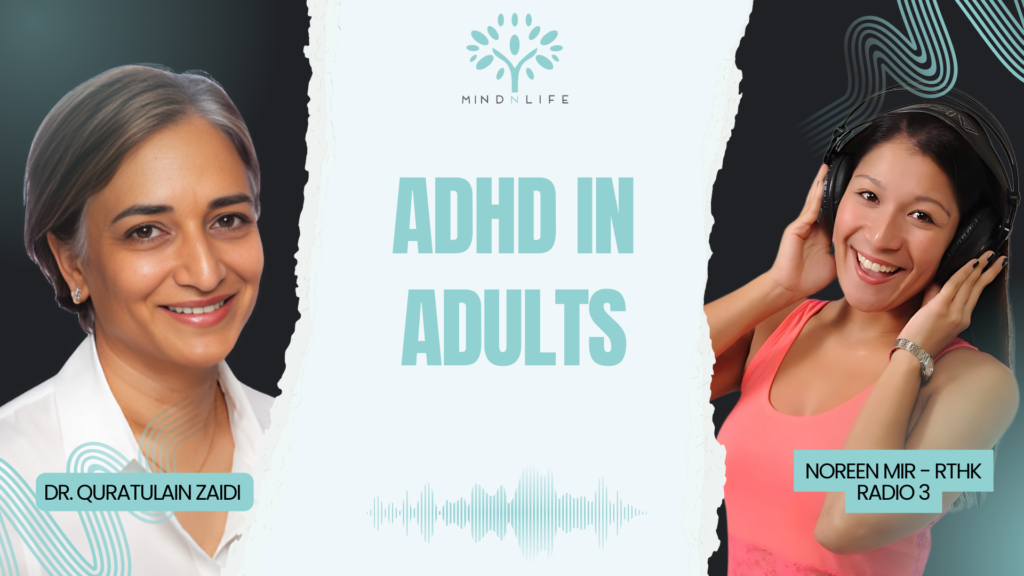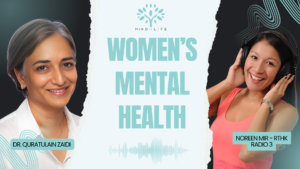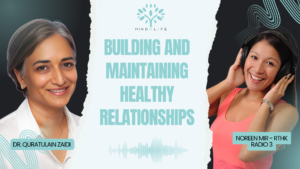Attention Deficit Hyperactivity Disorder (ADHD) isn’t just a childhood condition—it often persists into adulthood, presenting unique challenges in various aspects of life, particularly romantic relationships. This article explores how ADHD manifests in adults and offers practical strategies for navigating its impact on partnerships.
Understanding ADHD in Adults
According to clinical psychologist Dr. Quratulain Zaidi, ADHD is classified into three main types based on predominant symptoms:
- Predominantly Inattentive Presentation: Characterised by difficulty maintaining attention and focus. Adults with this type often make careless mistakes, struggle to sustain attention during conversations, seem not to listen when spoken to directly, have difficulty organising tasks, frequently lose items, are easily distracted, and tend to be forgetful in daily activities.
- Predominantly Hyperactive-Impulsive Presentation: Marked by fidgeting, difficulty staying seated, restlessness, excessive talking, blurting things out, interrupting others, difficulty engaging in quiet activities, and acting impulsively without consideration for long-term consequences.
- Combined Presentation: The most common type in both children and adults, featuring symptoms of both inattentiveness and hyperactivity-impulsivity.
For a formal diagnosis of ADHD in adults, at least five symptoms must be present for at least six months, significantly impacting at least two areas of life, such as work, home, or social settings. Importantly, symptoms must have been present before the age of 12, as ADHD is considered a neuro-developmental condition that persists from childhood.
“Hyperactivity usually decreases with age, but symptoms of inattention, impulsivity, and emotional dysregulation often remain,” explains Dr. Zaidi. She notes that more adults have been seeking diagnosis in recent years as awareness increases, with approximately 80% correctly suspecting the condition in themselves.
ADHD in Romantic Relationships: Challenges and Strengths
Unique Strengths
Adults with ADHD often bring remarkable strengths to relationships:
- Creativity and innovation
- Out-of-the-box thinking
- Spontaneity
- Enthusiasm and energy
“It’s amazing to be with that,” Dr. Zaidi acknowledges, highlighting how these qualities can enrich a partnership.
Common Challenges
However, ADHD can present significant challenges:
- Memory and Organisation Issues: Forgetfulness and inconsistent follow-through on commitments often frustrate partners.
- Emotional Dysregulation: Quick emotional outbursts followed by equally quick recovery can leave partners struggling to process what happened.
- Communication Difficulties: Distractions during conversations may make the non-ADHD partner feel unheard or dismissed. Impulsivity might lead to interruptions or blurting out comments, causing misunderstandings.
- Hyperfocus: While intense focus on interests can lead to deep connection, it may shift unpredictably, creating inconsistency in attention and engagement.
Effective Strategies for Couples
Dr. Zaidi emphasises that while ADHD explains certain behaviours, it shouldn’t be used as an excuse. “It is important to understand what’s going on, and then what is it that you’re going to do about it,” she advises.
For Both Partners:
- Open Communication: Be honest about how ADHD affects your relationship.
- Utilise Tools: Shared calendars and reminders can help manage responsibilities.
- Establish Clear Roles: Ensure balance in relationship tasks based on strengths.
- Play to Interests: “Things that they’re interested in, just hand it over to them. It’s much easier,” suggests Dr. Zaidi. For example, if the ADHD partner enjoys planning holidays, let them take charge of this task.
For Non-ADHD Partners:
- Cultivate Compassion: Remember that behaviours like losing items aren’t deliberate.
- Focus on Strengths: Appreciate the creativity, spontaneity, and energy your partner brings.
- Set Realistic Expectations: Consistency may be challenging, so celebrate small improvements.
- Maintain Humor: Finding lightness in challenging moments can defuse tension.
For Partners with ADHD:
- Set Reminders: Use technology to help you check in with your partner regularly.
- Work on Self-Awareness: Recognise your triggers and patterns.
- Be Open to Feedback: Listen non-defensively when your partner expresses concerns.
Managing Conflict
Conflict is inevitable in any relationship, but ADHD can intensify disagreements. Dr. Zaidi recommends using “I” statements to express feelings without blame: “I feel frustrated about the situation” rather than “You always forget things.”
It’s crucial to remember that ADHD behaviours aren’t character flaws or signs of disrespect—they’re symptoms of a neurodevelopmental condition. Building this understanding can help both partners approach conflicts with greater empathy.
When to Seek Help
If a partner feels consistently overwhelmed or disconnected, professional help may be beneficial. “If you’re not getting through to your partner at that moment in time, then you do need to be able to get some help,” advises Dr. Zaidi.
Couples therapy with a professional familiar with ADHD can provide strategies tailored to your specific relationship dynamics.
Building a Stronger Relationship
Dr. Zaidi emphasises that successful relationships where one partner has ADHD depend on “mutual understanding, empathy, and consistent effort.” While challenges exist, they can be managed with patience, communication, and a willingness to work together.
By focusing on the unique strengths that each partner brings—whether it’s the structure and organisation of the neurotypical partner or the creativity and spontaneity of the partner with ADHD—couples can build relationships that don’t just survive but thrive.
Understanding that ADHD is not a choice but a different way of processing information and experiencing the world can transform frustration into compassion, ultimately strengthening the bond between partners.
This article is based on an interview with clinical psychologist Dr. Quratulain Zaidi on RTHK Radio Three’s “Brunch with Noreen Mayer.”




